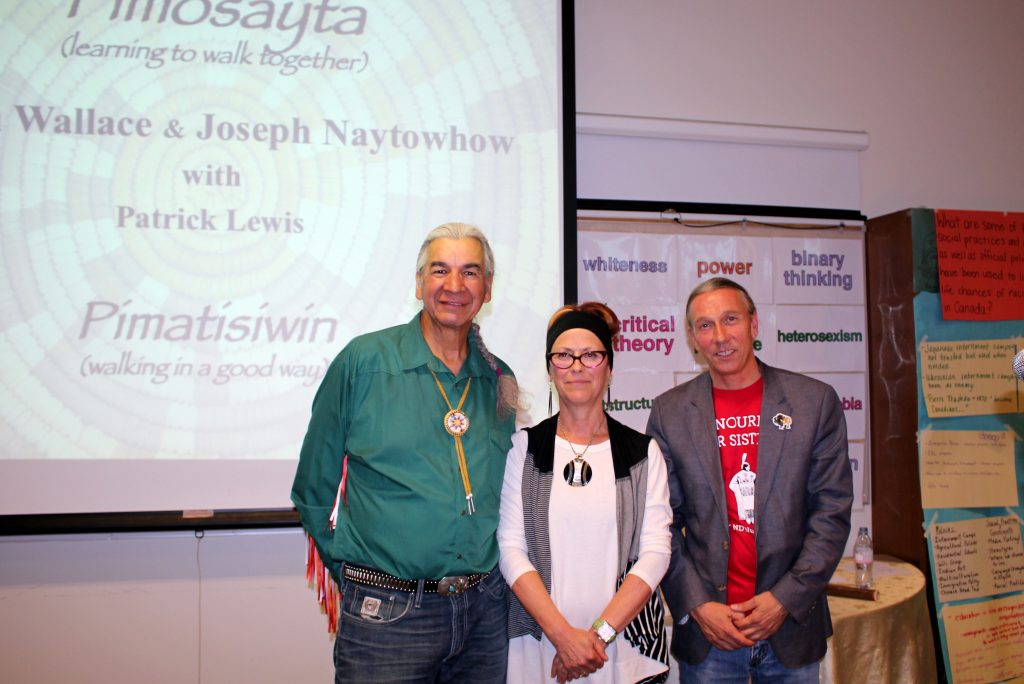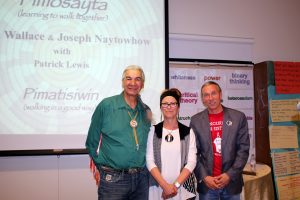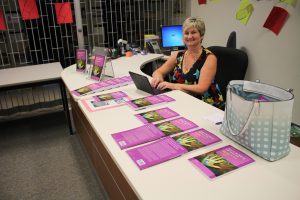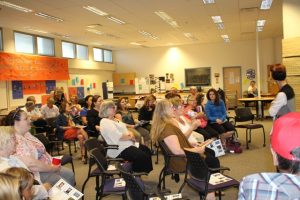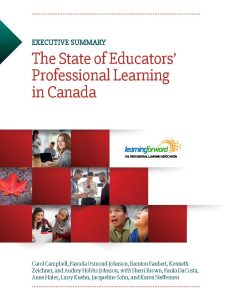 Book Launch: The Faculty of Education’s Dr. Pamela Osmond-Johnson is second author for this report: The State of Educators’ Professional Learning in Canada. Read this executive summary, which showcases the research questions addressed in the study, summarizes findings and conditions for professional learning in Canada, and concludes with implications for next steps. Examples of professional learning practices from various provinces highlight learning in action across the nation.
Book Launch: The Faculty of Education’s Dr. Pamela Osmond-Johnson is second author for this report: The State of Educators’ Professional Learning in Canada. Read this executive summary, which showcases the research questions addressed in the study, summarizes findings and conditions for professional learning in Canada, and concludes with implications for next steps. Examples of professional learning practices from various provinces highlight learning in action across the nation.
https://learningforward.org/…/p…/CanadaStudyExecSumm2016.pdf
_________________________
Press Release (Learning Forward)For Learning Forward: Tracy Crow, 972-421-0900, tracy.crow@learningforward.org
Study spurs call for culture of collaborative professionalism for educators
Vancouver, BC – December 5, 2016 — Coinciding with Learning Forward’s 2016 Annual Conference in Vancouver, British Columbia, Learning Forward today releases the findings from a new study, The State of Educators’ Professional Learning in Canada. Accompanying the study is a call to action by Michael Fullan and Andy Hargreaves.
A research team led by Carol Campbell, Associate Professor of Leadership and Educational Change at the Ontario Institute for Studies in Education (OISE), University of Toronto, examined the professional learning that educators experience in the provinces and territories of Canada. Recognized internationally as a high-performing education system, there was interest in identifying and understanding the approaches to professional learning within Canada. Previously, however, there was limited Pan-Canadian research available on this important topic. The study sought to address this gap in existing research and has identified key components and features of effective professional learning based on findings from educators’ experiences in Canada. The purpose of the study is to advance a priority focus on the elements of and conditions for effective professional learning in Canada and across the world.
“Our intent in doing the study was not to argue for a uniform approach to professional learning across Canada; rather it is the opposite,” said Campbell. “The purpose was to understand, value, appreciate, and respect the rich mosaic of educational experiences and diversity of approaches and outcomes from professional learning within and across Canada’s provinces and territories,” she noted. “It is our collective responsibility to ensure that educators and students have the highest quality learning opportunities and experiences. I’m hopeful that the study will stimulate further dialogue about professional learning across Canada and beyond.”
“Learning Forward is thrilled to support this important research study and to share it as we learn in Vancouver alongside colleagues from across Canada and around the world,” said Learning Forward Executive Director Stephanie Hirsh. “The enlightening work from Carol Campbell and her team deepens our collective understanding of professional learning and the complementary essay from Fullan and Hargreaves provokes new possibilities for how we strengthen the profession,” she said.
Several key findings emerged from the study, which included a review of research literature and existing data, case studies, surveys, focus groups, and collaboration with a national advisory group. The study outlined features of effective professional learning based on a review of the research literature and found that practices in Canada were broadly consistent with those features. At the same time, the study identified variations in the conception and implementation of those practices, offering opportunities for further exploration into local application of professional learning to advance next actions.
Findings include:
- Evidence, inquiry, and professional judgment are informing professional learning policies and practices.
- The priority area identified by teachers for developing their knowledge and practices is how to support diverse learners’ needs.
- A focus on a broad range of students’ and professionals’ learning outcomes is important.
The appropriate balance of system-directed and self-directed professional development for teachers is complex and contested. - There is no “one-size-fits-all” approach to professional learning; teachers are engaging in multiple opportunities for professional learning and inquiry with differentiation for their professional needs.
- Collaborative learning experiences are highly valued and prevalent within and across schools and wider professional networks.
- Teachers value professional learning that is relevant and practical for their work; “’job-embedded” should not mean school-based exclusively as opportunities to engage with external colleagues and learning opportunities matter also.
- Time for sustained, cumulative professional learning integrated within educators’ work lives requires attention.
- Inequitable variations in access to funding for teachers’ self-selected professional development are problematic.
- System and school leaders have important roles in supporting professional learning for teachers and for themselves.
Offering a call to the action in response to the report are study advisors Michael Fullan, OC, former OISE Dean, and Andy Hargreaves, Thomas More Brennan Chair in the Lynch School of Education at Boston College, who both consult widely with government policymakers and educational leaders around the world. Their essay, Bringing the Profession Back In, leverages the study as a stimulus for offering a new approach to developing and deepening the teaching profession in Canada and elsewhere.
At the heart of their argument is that professional learning and development (PLD), carefully defined, is at the heart of an effective and continuously growing teaching profession, and, in turn, the best visions and versions of it are rooted firmly in a system culture of collaborative professionalism that cultivates individual and collective efficacy.
Hargreaves said, “The Canadian study points to the importance of both professional learning and professional development as ways to improve the quality of teaching and learning. Professional learning is about deliberate efforts to learn something new or better, while professional development concerns how teachers become more confident and mature in their work with students and adults through experience, reflection and coaching, The most important thing of all though is that all this professional learning and development (PLD) is most effective when it takes place within a culture of collaborative professionalism where teachers work and plan together, take shared responsibility for all students’ learning in each other’s classes and schools, and undertake inquiry in teams to solve problems in their schools such as low achievement or cyber-bullying.”
Access The State of Educators’ Professional Learning in Canada: Executive Summary and Bringing the Profession Back In along with an executive summary to the case study of professional learning in British Columbia at www.learningforward.org/Canadastudy. Additional reports will be released in the coming weeks, including the full research summary.
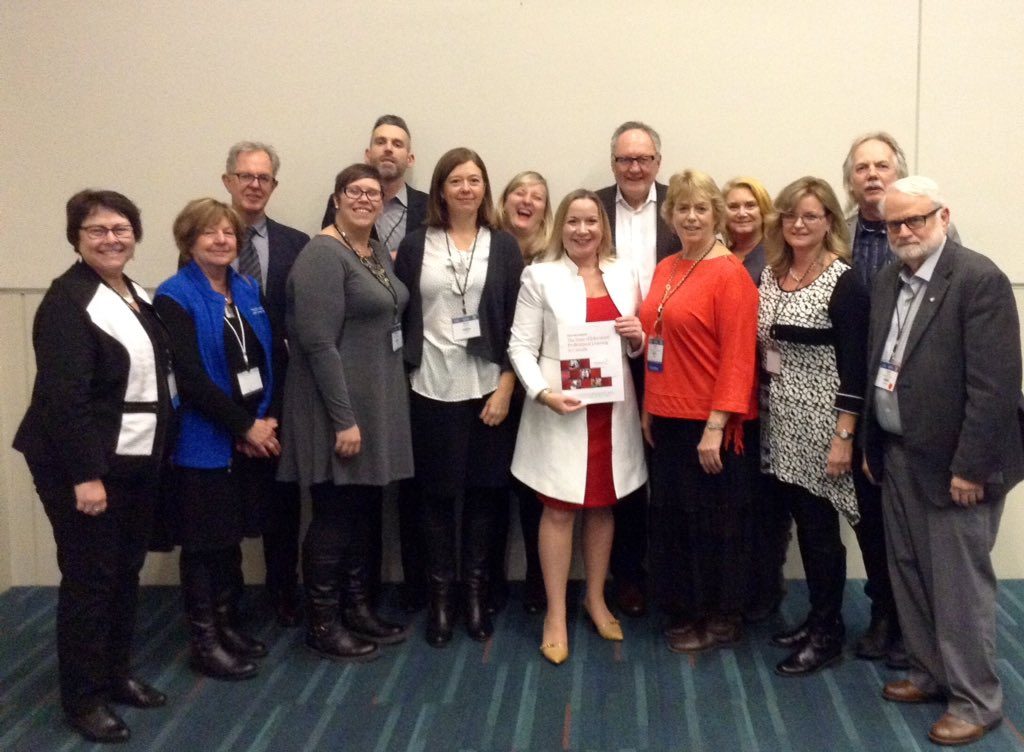
The research team for the study includes: Dr. Pamela Osmond-Johnson, Assistant Professor, University of Regina, Saskatchewan; Dr. Brenton Faubert, Assistant Professor, Western University, Ontario; and Dr. Kenneth Zeichner, Boeing Professor of Teacher Education, University of Washington, Seattle. Audrey Hobbs Johnson, Learning Forward senior consultant and former staff member with the provincial government of British Columbia serves as project coordinator. In addition, an Advisory Group consisting of experts in professional learning evidence, trends, and practices from across Canada was established to provide in-depth advice on promising practices and local contexts within provinces and territories
About Learning Forward
Learning Forward is a nonprofit, international membership association of learning educators committed to one vision in K–12 education: Excellent teaching and learning every day. To realize that vision Learning Forward pursues its mission to build the capacity of leaders to establish and sustain highly effective professional learning. Information about membership, services, and products is available from www.learningforward.org.
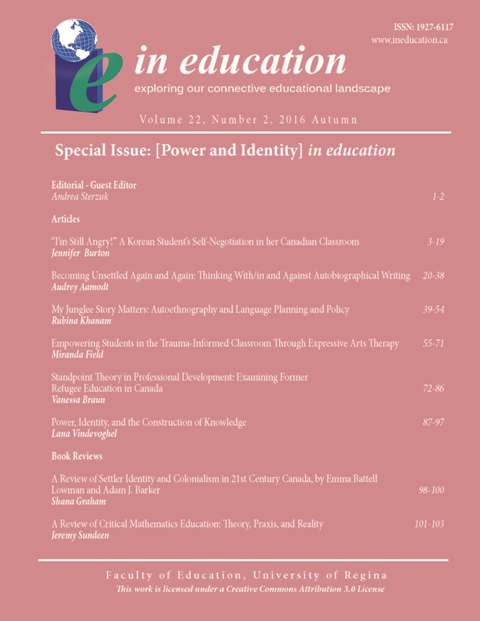
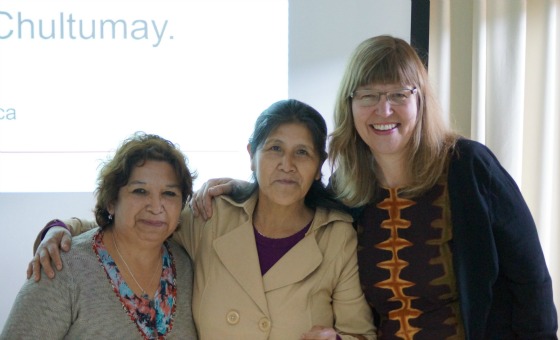


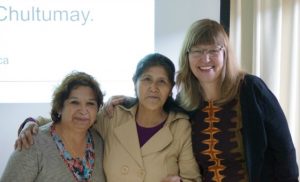
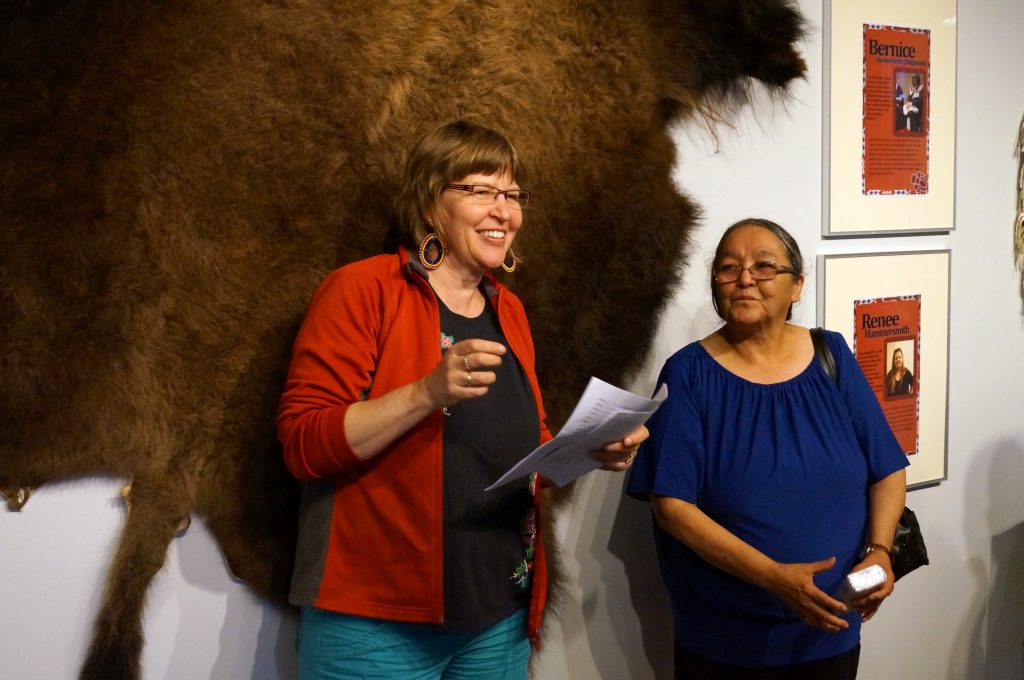
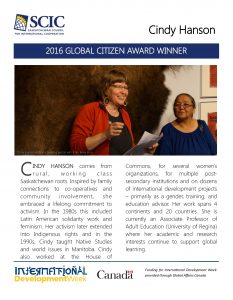
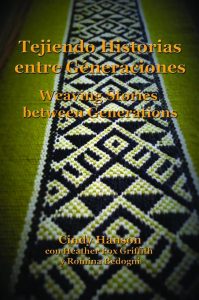 Dr. Hanson’s most recent SSHRC-funded research explores intergenerational learning in Indigenous textile communities of practice in both Canada and Chile. From this work, she has co-authored with Heather Fox Griffith and Romina Bedogni (doctoral candidates), a self-published book entitled,
Dr. Hanson’s most recent SSHRC-funded research explores intergenerational learning in Indigenous textile communities of practice in both Canada and Chile. From this work, she has co-authored with Heather Fox Griffith and Romina Bedogni (doctoral candidates), a self-published book entitled, 